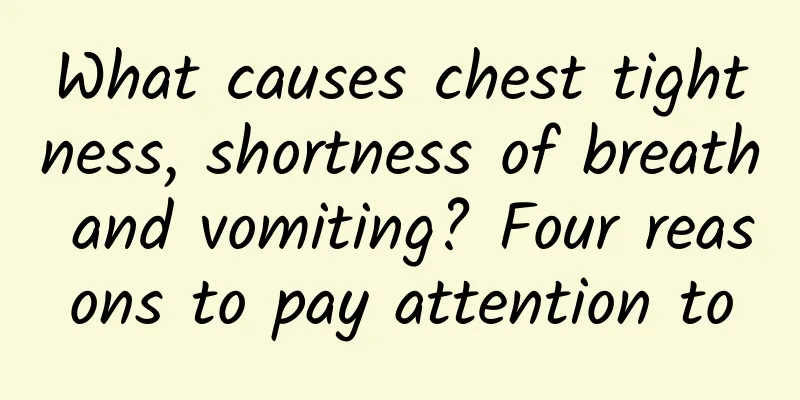Are anemia and iron deficiency the same thing?

|
In life, many friends have certain misunderstandings about anemia. They think that anemia is caused by iron deficiency and that it can be cured by simply supplementing the body with iron. In fact, this is not the case. Anemia and iron deficiency are not exactly the same thing, because there are many types of anemia, such as bleeding, hemolysis, hematopoietic dysfunction, etc., all of which can cause anemia. There are many types of anemia, and iron deficiency is not the only cause. Anemia refers to a common clinical symptom in which the red blood cell volume in the human body's peripheral blood is low and below the lower limit of the normal range. Since the measurement of red blood cell volume is complicated, hemoglobin (Hb) concentration is often used instead in clinical practice. Chinese hematologists believe that in my country's sea level areas, adult males with Hb <120g/L, adult females (non-pregnant) with Hb <110g/L, and pregnant women with Hb <100g/L are considered anemic. Iron deficiency anemia is the most common anemia in my country. Therefore, when people mention anemia, they tend to think of iron deficiency anemia first, and then work hard to supplement iron to improve iron deficiency anemia. But iron deficiency anemia is only one of the many causes of anemia. Iron deficiency, bleeding, hemolysis, hematopoietic dysfunction, and deficiency of B vitamins may all cause anemia. Vitamin B6 in the B vitamins is involved in the synthesis of heme porphyrin precursors. A lack of vitamin B6 can easily lead to a reduction in hemoglobin synthesis ability, leading to microcytic anemia. Insufficient intake of vitamin B6 can also damage platelet function and coagulation mechanism. In addition, folic acid and vitamin B12 in B vitamins are also closely related to anemia. Lack of folic acid and vitamin B12 can easily cause megaloblastic anemia. When folic acid is deficient, it will first affect tissues with faster cell proliferation rates, and red blood cells are one of them. When folic acid is deficient, the division and proliferation rate of immature red blood cells in the bone marrow slows down, and they remain in the megaloblastic stage and their maturation is blocked. The cell volume increases to the same level as normal red blood cells, but they cannot bear the same physiological functions as normal red blood cells, and their lifespan is shorter than normal red blood cells. At this time, symptoms such as dizziness, fatigue, mental depression, pale complexion, and glossitis, loss of appetite, and diarrhea may occur. Therefore, when you suspect that you have anemia, you should undergo a comprehensive blood test to find out what type of anemia you have and then take the appropriate treatment. Pregnant women should be especially careful about anemia caused by folic acid deficiency Compared with ordinary people, folic acid is more important for pregnant women, because folic acid deficiency may cause preeclampsia, placental abruption, etc., and may also cause congenital defects such as intrauterine fetal growth retardation, spontaneous abortion, and fetal neurological malformations. Therefore, pregnant women have a great demand for folic acid. In addition, under the influence of hormone secretion in the body in the early stages of pregnancy, the digestive system of pregnant women changes, making them prone to early reactions such as morning sickness, which can easily lead to the loss of folic acid. Therefore, it is usually recommended to consciously supplement folic acid three months in advance during the pregnancy preparation period. By the second trimester, the pregnant woman's hemoglobin will increase by about 20% overall, but the plasma will increase by about 50% overall, causing the hemoglobin concentration to decrease and special symptoms of anemia during pregnancy to appear. Therefore, pregnant women should consume more calcium, iron, folic acid and other vitamins than normal non-pregnant women during pregnancy to prevent the effects and harms that iron deficiency anemia and megaloblastic anemia may cause to themselves and the fetus. Balanced diet with comprehensive supplementation of B vitamins B vitamins include a variety of vitamins, including vitamin B1, B2, B6, B12, niacin, and folic acid. They are water-soluble vitamins. Usually, even if consumed in large quantities, they will not be stored in the body, but will be excreted with sweat and urine. Therefore, B vitamins need to be taken regularly every day to meet the body's daily needs. The food sources of vitamin B6 are very wide, including meat, whole grains, vegetables and nuts. However, due to the low bioavailability of vitamin B6 in plant-based ingredients, vitamin B6 should be supplemented more through animal sources. The food sources of folic acid are also very wide. The most prominent ones are pork liver, pork kidney, eggs, peas and spinach. Other fruits, vegetables and meats also contain folic acid to varying degrees. However, since the absorption rate of folic acid in natural foods is only about 50%, people who have special needs for folic acid supplementation should take folic acid supplements appropriately. Compared with the first two B vitamins, the source of vitamin B12 is much narrower. It basically only exists in animal foods such as liver, lean meat, fish, shellfish, and eggs. Plant foods basically do not contain vitamin B12. Vegetarians are most likely to suffer from vitamin B12 deficiency due to not eating animal foods for a long time, and they are also one of the groups that need to be most vigilant about megaloblastic anemia. The human body's daily demand for B vitamins is not great, except for people in special periods such as pregnant women. Generally, as long as a variety of food ingredients are fully consumed according to the requirements of the dietary pyramid, the daily demand for B vitamins can be met. There is no need to purchase additional B vitamin preparations for supplementation, and you should not take large amounts of B vitamin preparations just because you have heard that B vitamins can help prevent cardiovascular and cerebrovascular diseases and resist fatigue. Although there are basically no clinical cases of direct acute poisoning caused by excessive intake of B vitamins, this does not mean that long-term excessive intake of B vitamins will not cause any harm to the body. |
<<: What should I do if my buttocks are red and painful?
>>: What should pregnant women eat if they are deficient in iron and zinc?
Recommend
Is it better to have a fast or slow metabolism?
Some of my friends have more fat on their bodies,...
Chickenpox vaccine side effects
Because children are still in the developmental s...
The side effects of distraction wood are huge
The side effects of the herb are generally not ve...
Abdominal artery aneurysm surgery
Abdominal artery hemangioma is a very special typ...
How to treat stiffness, pain and dizziness in the cervical spine
After suffering from cervical spondylosis, the ne...
I feel like my period is coming but it's not happening
If your period has not come when it should have, ...
Is moxibustion good for weight loss?
Moxibustion is indeed a very good way to lose wei...
Swollen lymph nodes in the neck
Lymph nodes are very important immune organs in t...
How long can you live with age-related brain changes?
The so-called senile diseases may be senile demen...
What causes whiteheads?
Whitehead acne is also quite common in our daily ...
Is uremia hereditary?
Speaking of uremia, I believe many friends know t...
What is anal prolapse?
Rectal prolapse is a relatively common anorectal ...
Causes of pituitary tumors
Pituitary tumor is a very common disease in daily...
What are the traditional Chinese medicines for clearing heat and detoxification?
If you don't take good care of your body in l...
Why does my waist hurt when I put force on it?
The waist is one of the important parts of the hu...









